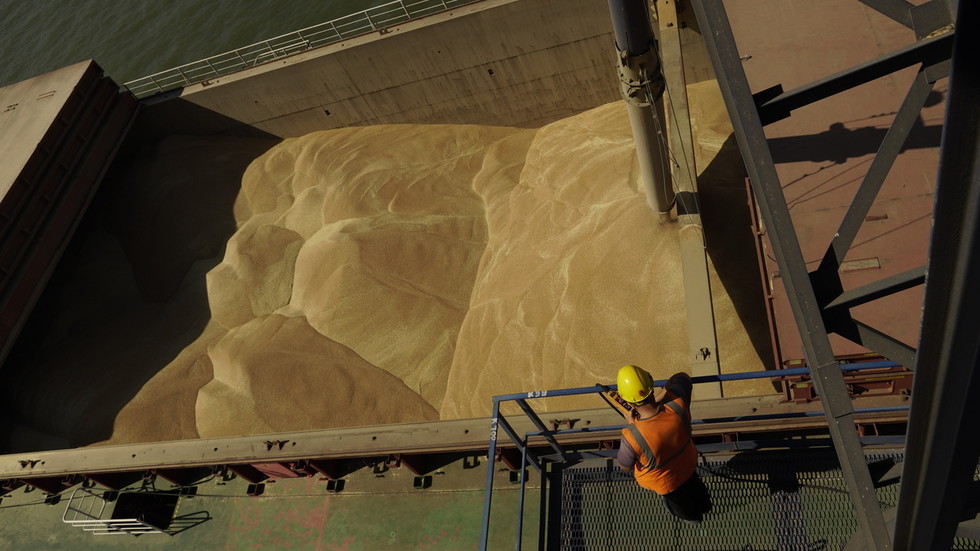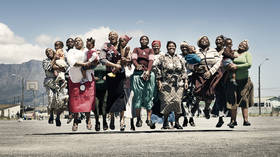
Russia “absolutely” does not want to make Africa dependent, the Kremlin spokesman has said

FILE PHOTO: Grain being loaded onto a ship in the Russian port of Rostov-on-Don © Stringer/Anadolu Agency via Getty Images
Russia has no intention of making African nations over-reliant on its grain, contrary to what the EU leadership claimed in a letter quoted by the media, Kremlin spokesman Dmitry Peskov has said.
The message was reportedly penned by EU foreign policy chief Josep Borrell on Monday, and warned that Moscow sought “to create new dependencies by exacerbating economic vulnerabilities and global food insecurity” though offering its agriculture products at discount prices to developing nations.
“This is absolutely not so,” Peskov told journalists on Thursday, when asked about the remark, which Reuters had published the day before. Russia remains a reliable supplier despite Western attempts to curb its exports, he said.
“We could have done more to meet the growing demand, if it were not for those sanctions, which are illegal under international law and which we have to act against,” he added.

Read more
Borrell’s letter was sent to the governments of developing nations and members of G20, according to Reuters. It mostly reiterated Brussels’ public position on the Russian withdrawal from the Black Sea Initiative. Under the scheme, the Russian military granted safe passage to commercial ships transporting Ukrainian grain.
The EU denies that its economic sanctions on Russian financial and maritime sectors impact the ability to deliver food and fertilizer to foreign markets. Borrell branded statements to the contrary “lies” in a scolding statement on Tuesday.
“Russia is now approaching vulnerable countries, notably in Africa, with bilateral offers of limited grain shipments, pretending to solve a problem it created itself. This is a cynical policy of deliberately using food as a weapon,” the denouncement said, mirroring the quotes from the letter.
The Russian government said that contrary to Western assurances, private companies are hesitant to provide services to Russian ships, while restrictions on financial transactions undermine the competitiveness of Russian exporters. Borrell claimed in the letter that the EU had a policy for “preventing over-compliance and de-risking activities.”
READ MORE: Russia reminds West of conditions to resume grain deal
Moscow has said it would be willing to reconsider its pullout from the grain deal as soon as the UN delivers on a promise to facilitate Russian exports. The pledge was made a year ago, when the agreement was signed. But Russia will no longer give concessions in exchange for promises of progress on the issue, Kremlin officials have stressed.




